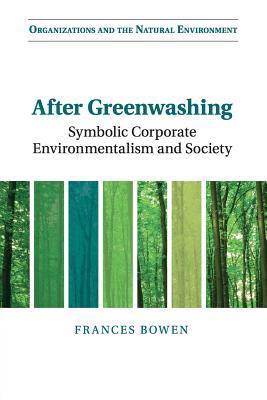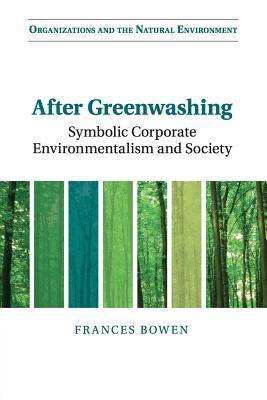
Je cadeautjes zeker op tijd in huis hebben voor de feestdagen? Kom langs in onze winkels en vind het perfecte geschenk!
- Afhalen na 1 uur in een winkel met voorraad
- Gratis thuislevering in België vanaf € 30
- Ruim aanbod met 7 miljoen producten
Je cadeautjes zeker op tijd in huis hebben voor de feestdagen? Kom langs in onze winkels en vind het perfecte geschenk!
- Afhalen na 1 uur in een winkel met voorraad
- Gratis thuislevering in België vanaf € 30
- Ruim aanbod met 7 miljoen producten
Zoeken
€ 64,95
+ 129 punten
Uitvoering
Omschrijving
Businesses promote their environmental awareness through green buildings, eco-labels, sustainability reports, industry pledges and clean technologies. When are these symbols wasteful corporate spin, and when do they signal authentic environmental improvements? Based on twenty years of research, three rich case studies, a strong theoretical model and a range of practical applications, this book provides the first systematic analysis of the drivers and consequences of symbolic corporate environmentalism. It addresses the indirect cost of companies' symbolic actions and develops a new concept of the 'social energy penalty' - the cost to society when powerful corporate actors limit the social conversation on environmental problems and their solutions. This thoughtful book develops a set of tools for researchers, regulators and managers to separate useful environmental information from empty corporate spin, and will appeal to researchers and students of corporate responsibility, corporate environmental strategy and sustainable business, as well as environmental practitioners.
Specificaties
Betrokkenen
- Auteur(s):
- Uitgeverij:
Inhoud
- Aantal bladzijden:
- 310
- Taal:
- Engels
- Reeks:
Eigenschappen
- Productcode (EAN):
- 9781107421738
- Verschijningsdatum:
- 8/10/2015
- Uitvoering:
- Paperback
- Formaat:
- Trade paperback (VS)
- Afmetingen:
- 152 mm x 229 mm
- Gewicht:
- 417 g

Alleen bij Standaard Boekhandel
+ 129 punten op je klantenkaart van Standaard Boekhandel
Beoordelingen
We publiceren alleen reviews die voldoen aan de voorwaarden voor reviews. Bekijk onze voorwaarden voor reviews.









